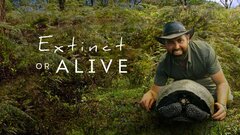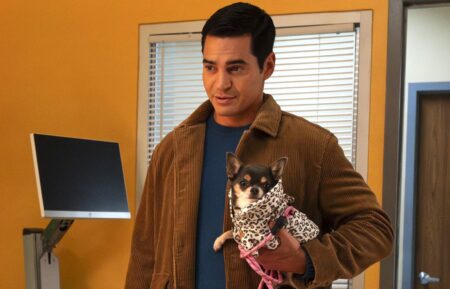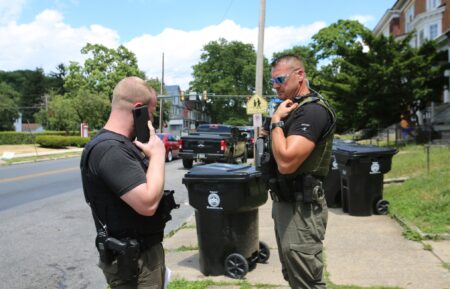Forrest Galante Talks Discovering Lost Creatures in ‘Extinct or Alive’
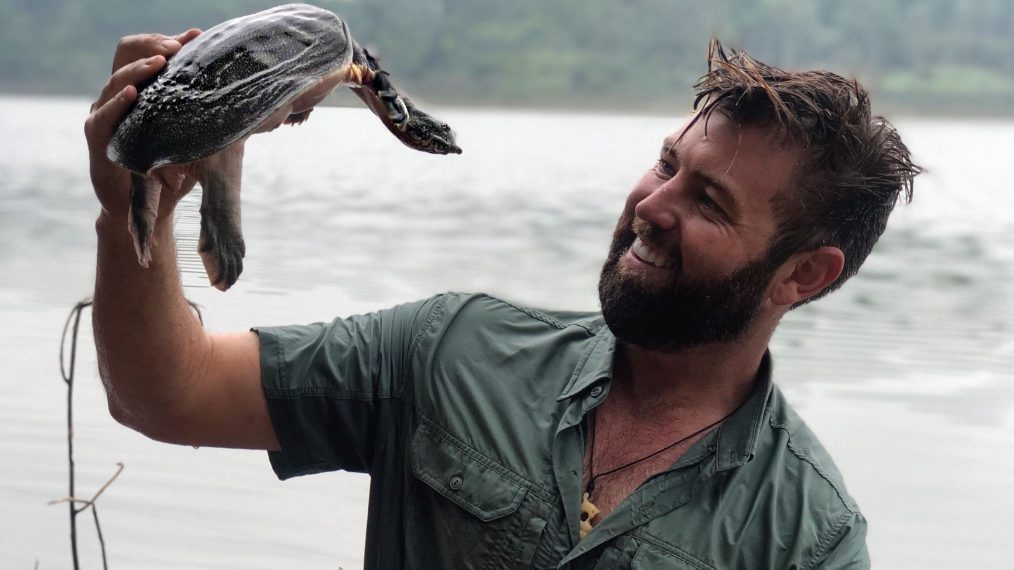
Q&A
He’s already been dubbed the “Dr.Frankenstein of Animals” after clearing many animals off the global extinction list, and he’s just getting started.
Forrest Galante, host of Animal Planet’s Extinct or Alive, is ready to set sail in search of more creatures previously believed to be extinct. Season 2 premieres Wednesday, October 23, and if it’s anything like its first season, then we expect more outrageous discoveries, intense obstacles, and promising results.
TV Insider spoke with Galante to learn more about the crazy expeditions we should expect in the 10-episode second season.
What sparked your interest in animals and specifically exploring endangered species?
Forrest Galante: I am a biologist, not a TV guy. I absolutely love the pursuit of wildlife and I have the kind of hunter instincts to try and find things that are rare, distinct and beautiful — and I like to go to the extremes. Animals that are the most deserving and underappreciated were those that were on the true edge of extinction, and that was why I decided to look for them.
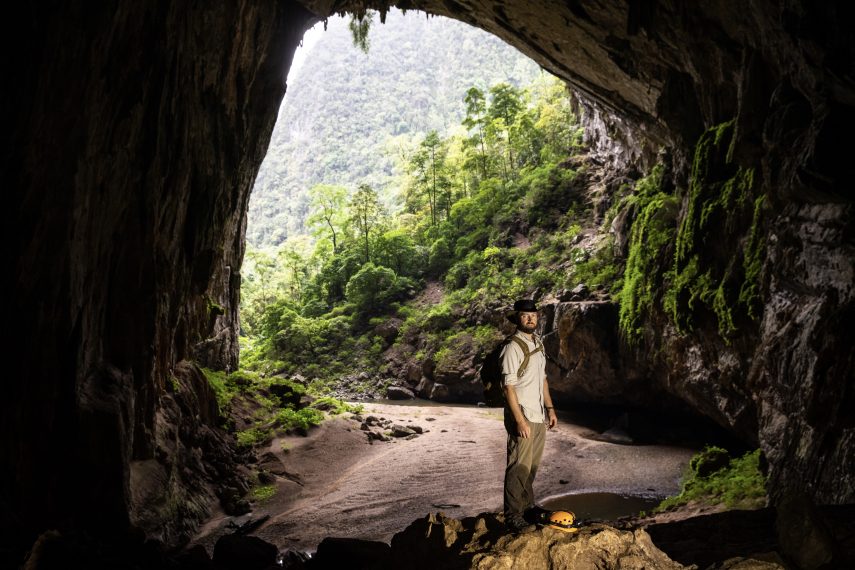
(Animal Planet)
So tell us about this upcoming season. Should we expect any new techniques or segments?
Each animal is unique and requires their own special procedures in where I attempt to find them. You’re going to see a lot of new stuff in every new episode. Every single expedition has new science, new technology, new locations, and honestly, they’re pretty fantastic.
What types of locations will we be seeing in the new season?
I will be traveling to 10 different countries — from the swamps of Louisiana to the High Sierra in the United States, and that’s just the domestic stuff! I go into the world’s largest cave in Southeast Asia, where we don’t see light for three days. I travel to the most remote part of the Amazon jungle. You will see me fly into Pablo Escobar’s very own drug dealer den in the middle of the Amazon in a charter DC3 to go 100-miles up river in an area where people have never been before. We go to pretty incredible places, the Galapagos islands, Borneo, the Caribbean, it’s quite the adventure.
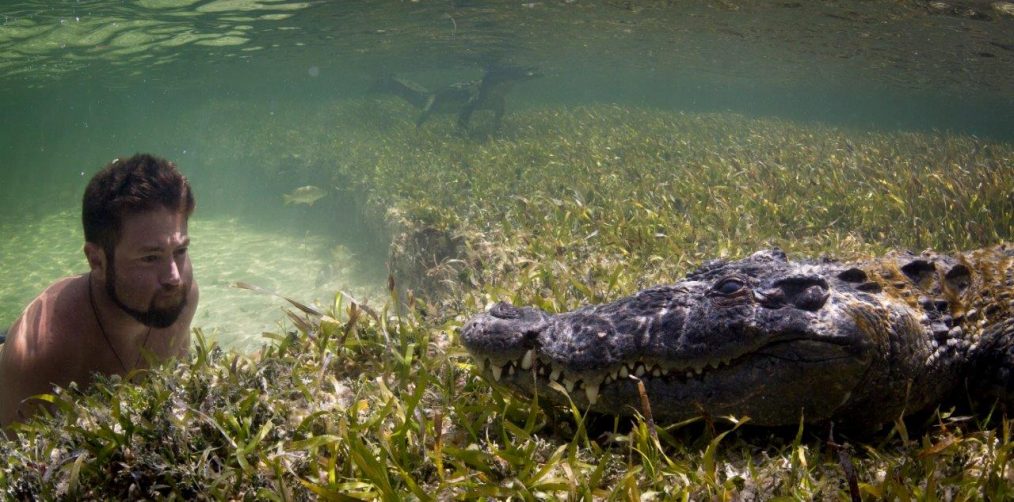
(Animal Planet)
Do you ever get afraid while exploring? That sounds like scary stuff!
I don’t see it as scary, it doesn’t register to me as scary. Things happen! I was joking with a friend about how literally in every expedition I was bent over puking this year because something got me, whether it’s from food poisoning or many other things.
Are there any sort of emergency protocols in case someone gets injured or bitten?
Nope! There are only six of us and I am the team leader and the team medic. So if anything happens, I’d be the one to take care of all of us.
Wow, that sounds like a lot of responsibility!
That’s how I do!
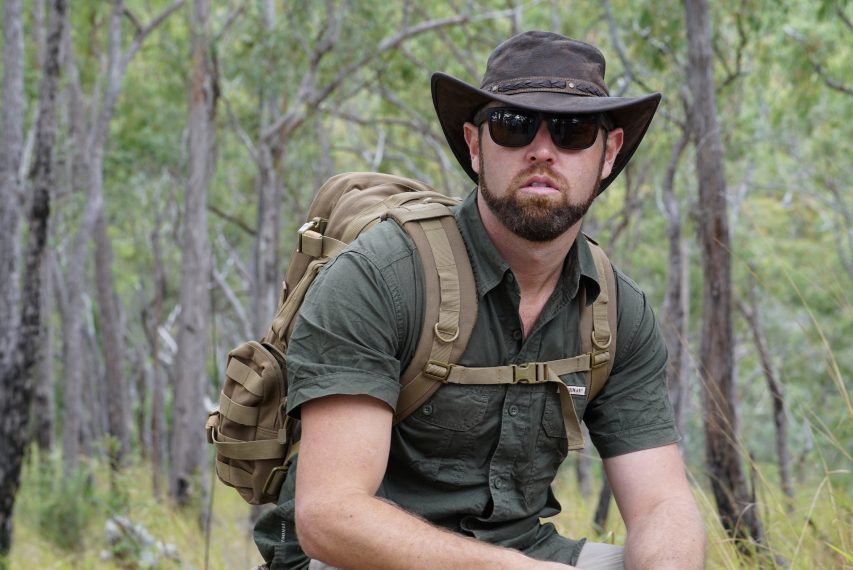
(Animal Planet)
I was watching the last season, and was shocked to learn you were able to locate the Zanzibar leopard. How did it feel when you discovered it wasn’t extinct?
Oh man, there are a few words that can describe the emotion, excitement, and joy that goes into the feeling of holding an animal that the world has written off. I think we do a very good job of experiencing it within the show. This season, there are new earth-shattering discoveries coming to the TV, so I’m pretty happy about it.
We saw the news that there was another discovery from the Galápagos — that’s pretty exciting.
More than a couple times in this new season, we will literally be rewriting natural history as we know it. The season opens with my expedition into the Galápagos Islands where I find the believed extinct Fernandina giant tortoise, which has only been seen once 114 years ago. The viewers go on this journey with me on this volcanic island where the temperature reaches 120 degrees to find this lost tortoise — it’s quite a remarkable journey and that’s just the season opener! There’s a lot more after that.
What is the research and planning process like before you go on an expedition?
Our research and the people that we work with — it’s extensive and ongoing. There are multiple years that go into the planning, it’s a combination of figuring out what subject to look for that the entire world hasn’t been able to find, and what are the clues that will lead us to this animal. Some of them are pretty challenging logistically, just to get to where the animal might be. And then we have to begin the actual rigorous, difficult process of attempting to located the creature which literally as we are able to do. It’s challenging.
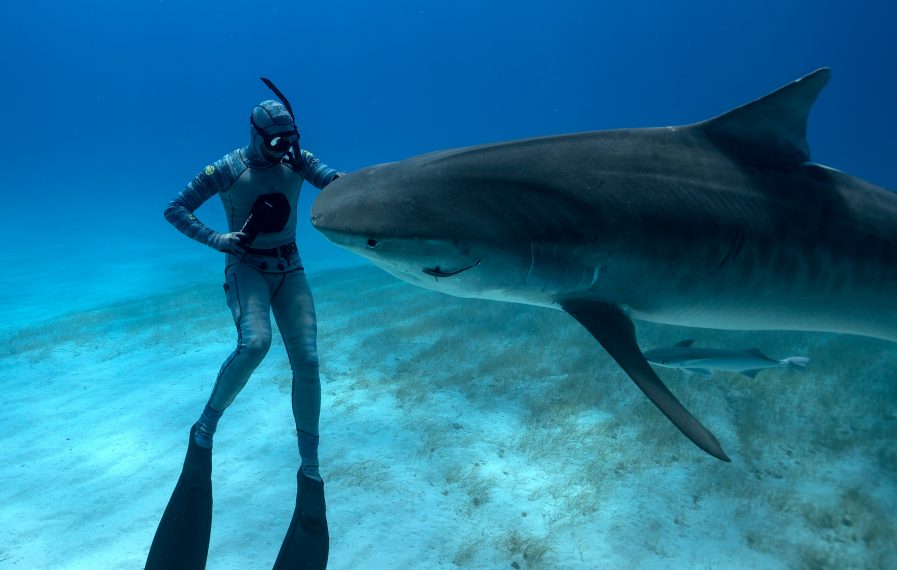
(Animal Planet)
So what happens after you discover a species once thought to be extinct?
Well, a lot of things happen after we discover them. I am a conservationist, so once we find something, we have to go through very many difficult and rigorous, specific protocols to make sure that it is all verified … and that we inspire ongoing conservation of the species. Uncovering these species allows us to open up resources to preserve and protect them.
I didn’t think about it like that. I see you have been very active on social media, why is social media important to your work?
The support from the followers that I have on social media is so overwhelmingly positive. Sometimes when I am sitting in a camp with 58 beestings, and every part of my body wants to give up and I feel like melting and breaking down, it’s 105 degrees out, we haven’t found the animal that we’re looking for, and I think about how much those people who follow me online care about the expedition. [I think about] how much they care about what I am doing and are inspired to love conservation because of the things that I am putting myself through. It helps motivate me to do a better job and go through it.
Extinct or Alive, Season 2 Premiere, Wednesday, October 23, 9/8c, Animal Planet
From TV Guide Magazine
Crime, Comedy & Convenience Stores: Unwrapping Hulu's 'Deli Boys' With the Cast
Cupcakes, corndogs…and cocaine?! Two brothers find themselves in a hilarious pickle when they inherit an unseemly bodega biz in Hulu’s new comedy Deli Boys. Find out how The Sopranos and Real Housewives of Orange County influenced the cast. Read the story now on TV Insider.




